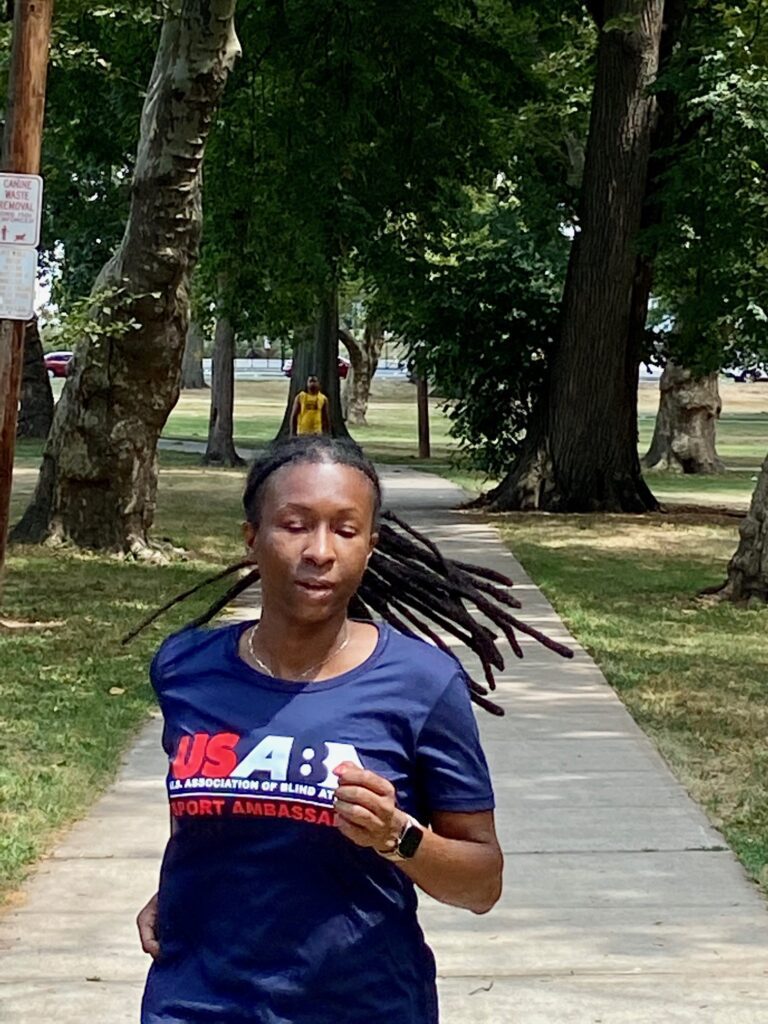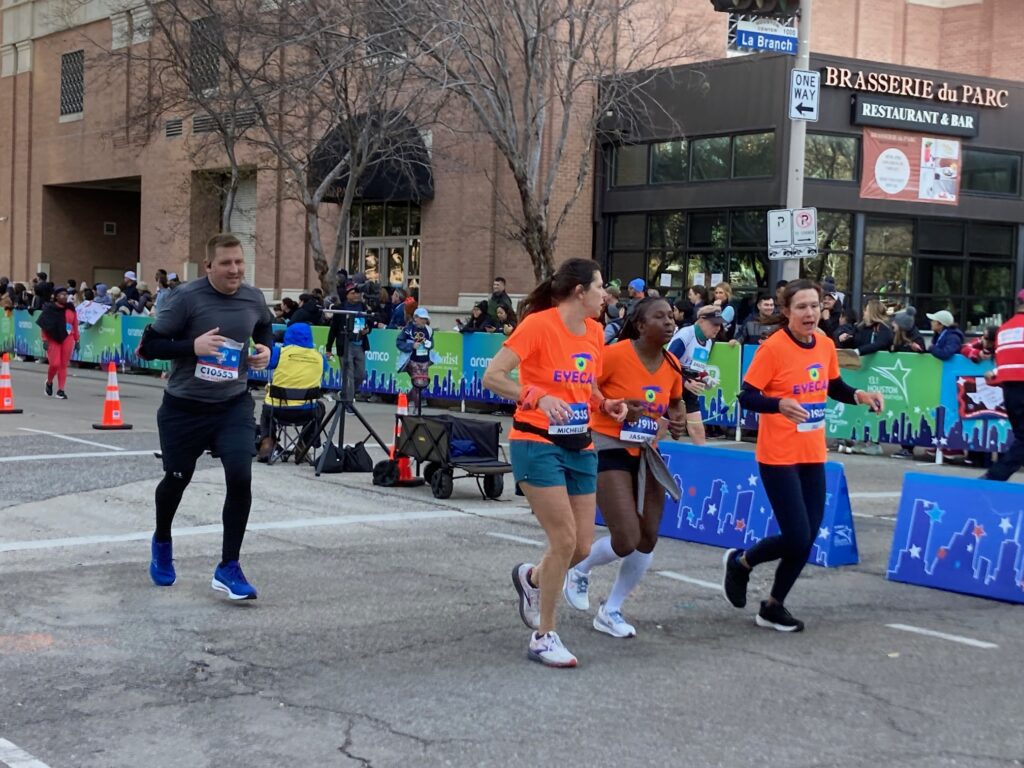The 35-year-old athlete took a year off to get married and raise a family. Now, she’s ready to resume training for 2025.

There is always an adjustment period for someone with vision loss, whether it’s at birth or later in life. Having a strong support system can go a long way toward making that adjustment more bearable.
Jasmine Murrell was born with glaucoma, leaving her with limited vision in her right eye and only light perception in her left. After years of pain and blurred vision, Murrell opted to have her left eye removed in 2017.
Her condition was hereditary dating back three generations including her mother, grandparents and an aunt. Of her two other biological siblings, her sister Jameisha is also visually impaired, while her brother Jermaine is fully sighted. Murrell also has several adopted siblings who do not have glaucoma.
Being surrounded by others in the family with the same eye disease allowed Murrell to grow up in an environment that offered freedom from fears or limitations.
“I had a lot of good role models,” explained the 35-year-old Murrell, a native of New Jersey. “I probably didn’t start noticing the differences between myself and others until I got into elementary school. That’s when I started seeing how different I was from my peers as far as experiences and what I could and couldn’t do as far as limitations.”
Murrell was also fortunate enough to attend private schools, allowing for smaller classes and more individualized attention. She graduated from St. Patrick High School before earning a bachelor’s degree in psychology from Kean University and a master’s in rehabilitation counseling from Rutgers.
Sports was not a major part of Murrell’s life during her childhood, since there was little emphasis on physical education in her private schools.
“We had very good academics training. Physical activities, that’s where there was a (void). Some PE, but not to the level I would have liked.”
It wasn’t until her 20’s that Murrell discovered adaptive sports. Her mother Jackie, a foster parent, found out about goalball through a resource worker who happened to be a member of the New Jersey Association of Blind Athletes (now known as ABANJ). Jasmine and Jameisha both gave goalball a try and loved it. They currently play for the New Jersey Honeybees, and Jasmine is a sport ambassador for the United States Association of Blind Athletes.
In 2018, Jasmine helped the Maryland School for the Blind set a Guiness World Record for the longest goalball game that lasted 25 hours and 30 seconds. After losing a player to injury, her team had only five players in rotation.
“That was a very unique experience. When I signed up for it, I didn’t know what I was thinking. About eight hours in, I was like, ‘oh, this is going to be a really long night’. But it was so much fun playing with everyone who took part in it.”
When Murrell was in elementary school, she took part in Olympic Days that featured running events. It was then she developed an interest in track & field, although it would be some time before she began seriously competing.
“Those events were always very interesting to me. But because of the visual challenges, I didn’t know how I could or if I would (participate). It’s always been something that’s lingered in the back of my mind.”
After joining ABANJ, Murrell made it known she would like to begin training as a track & field athlete. She connected with another blind runner who encouraged her to pursue competition, and began her journey of becoming a Paralympian.
Murrell’s Paralympic debut came at the 2019 Parapan American Games in Lima, Peru, where she competed in the long jump and women’s 100m in the T11-12 category. Before the competition, she tore her meniscus but decided to compete anyway. While she didn’t place, Murrell enjoyed the experience and knew this was something she wanted to do after her injury healed.
“It was very electrifying, very exciting. The crowds, the people, just being in the village… everything about that experience definitely made me want to come back.”
Murrell also competes in marathons across the country including Boston, New York and Houston.

After attending the Foreseeable Future Foundation’s annual gala last year, Murrell applied for a scholarship to help finance her training. She was accepted as a recipient, allowing her to cover entry fees and other costs for future events, including the 2025 Boston Marathon.
“Without the grant, the costs would not be possible. I’m so appreciative and so grateful that there are organizations that help us to get to these events and competitions. Without their support, it would not be possible, and it would be terrible because you wouldn’t have a (good) showing within the visually impaired community.”
This summer, Murrell married her fiancé, Kevin Orcel, a blind runner and goalball player. They met at the 2016 Goalball National Championships and have a 17-year-old son. Murrell took the year off to concentrate on raising a family and plan a wedding but is eyeing the 2025 World Championships for her return to competition.
“I’m looking forward to getting to a stable point so that I can go back into training. I talked it over with my husband, and I’m definitely back in for 2025.”
